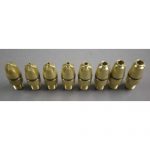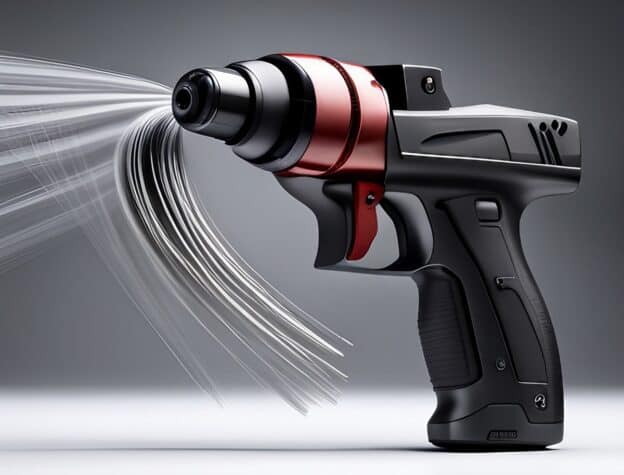What Size Spray Tip Should I Use with my Spray Gun?
It’s crucial to get the right spray gun nozzle tip size for your project for the ultimate professional results. But how do you know which one to choose? Our team of experienced painters has identified the five key factors that need to be taken into consideration when selecting the right nozzle tip size for each job. We’ll make sure you have all the advice and guidance needed to make an informed decision, so your project can look amazing with great coverage and finish!
KEY TAKEAWAY
1. Get the perfect size of spray gun nozzle tip to suit each job requirement.
2. Benefit from our comprehensive step-by-step guide that simplifies the selection process.
3. Access our expertise and knowledge to make the right choice without hassle and confusion.
4. Avoid costly mistakes by selecting a nozzle tip of appropriate size according to your needs.
5. Take advantage of our tailored advice and insights to enhance the efficiency of your work.
There are three main factors to consider when determining the size tip that will produce the best results.
- First, examine the coating that will be sprayed. Put simply, heavier coatings will require a larger orifice size than lighter ones. For example, primers are usually thicker than the accompanying paint so you should use a 1.7 or 1.8 mm tip to prime most surfaces. Most painters will stay in the range of 1.2 to 2.0 mm unless the paint being applied is specialized. (See chart below.)
- The next thing to consider is your project surface area. This determines the appropriate fan width that your sprayer will produce, that is, the shape in which the product will leave the gun nozzle. Airless spray guns have more control over the fan width than conventional spray guns because the coating is forced through the tip without being atomized by air. This causes the tip to have a large impact on the fan width and shape. Most boat projects consist of large surfaces and so a wide fan will increase the spray coverage and also provide the ability to spray close to the surface without too much build up. Smaller surfaces will require a small fan width to reduce overspray. This also makes it possible to spray further away from the surface without too much falloff because the fan is more focused.
- Lastly, consider the spray gun that is being used. Make sure that the spray tip you plan on using will be supported by the gun. Most spray gun manufacturers will provide this information in their product overview. The Bottom Paint Store distributes ES Manufacturing Gelcoat Spray Guns. The ES G830 gun will support a range of 0.8 – 2.0 mm. The ES G100 and G200 gelcoat spray guns support a range of 0.8 – 7.1 mm tips. If you aren’t sure about your gun’s supported sizes, check with the gun manufacturer.

| Common Spray Tip Sizes and Their Uses | |
| Tip size (mm) | Commonly Used for |
| 0.8 | Parting Films – PVA – very fine mist |
| 1.2 | Clear Coats – super fine finishes |
| 1.4 | All Around Tip – clears, base coat, single stage paints |
| 1.6 | General Purpose – light to heavy viscosity materials |
| 1.8 | Primers – will apply primer quickly |
| 2.2 -2.5 | Gel Coats and Resins – for thick resins and not paints |
By considering these five factors, you can ensure you select the appropriate spray gun nozzle tip size for each job. If you have any questions or need additional guidance on selecting the right size, the experts at the Bottom Paint Store are here to help.
Bibliography Research Data
http://boatpaintguide.com/gelcoat-spray-gun-the-right-tool-for-a-great-job/#.U_80dfldVWg
http://esmfg.com/aspnet_client/g860_hvlp_gelcoat_spray_gun.html
http://www.finishsystems.com/qanda.html
http://www.international-marine.com/paintguides/mpg_paintapplication.pdf
http://magnum.graco.com/products/M_Pages.nsf/Webpages/0Spray_Tip_Info
http://www.carcraft.com/howto/ccrp_0511_paint_spray_gun/#ixzz3Bheyr89Z

